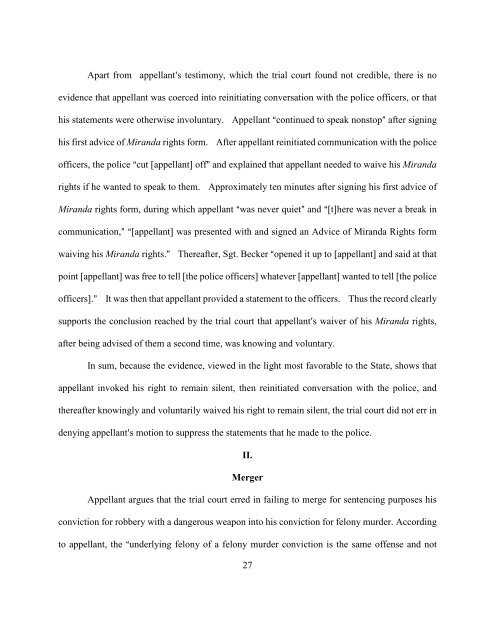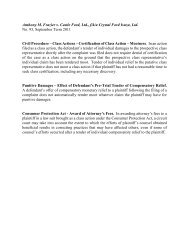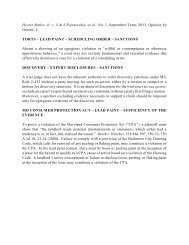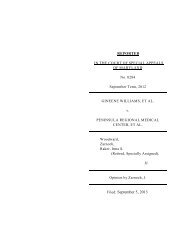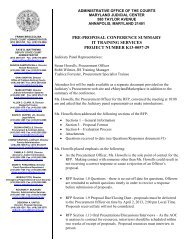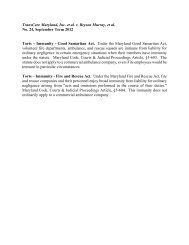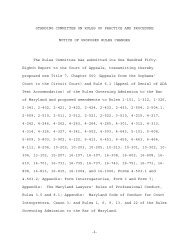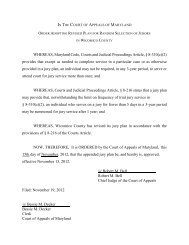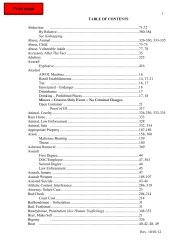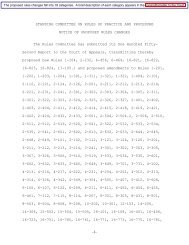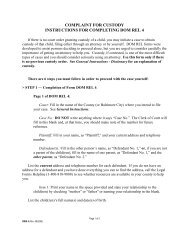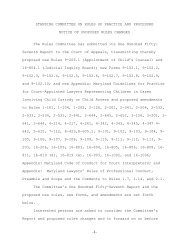2842/09 - Maryland Courts
2842/09 - Maryland Courts
2842/09 - Maryland Courts
Create successful ePaper yourself
Turn your PDF publications into a flip-book with our unique Google optimized e-Paper software.
Apart from appellant=s testimony, which the trial court found not credible, there is no<br />
evidence that appellant was coerced into reinitiating conversation with the police officers, or that<br />
his statements were otherwise involuntary. Appellant Acontinued to speak nonstop@ after signing<br />
his first advice of Miranda rights form. After appellant reinitiated communication with the police<br />
officers, the police Acut [appellant] off@ and explained that appellant needed to waive his Miranda<br />
rights if he wanted to speak to them. Approximately ten minutes after signing his first advice of<br />
Miranda rights form, during which appellant Awas never quiet@ and A[t]here was never a break in<br />
communication,@ A[appellant] was presented with and signed an Advice of Miranda Rights form<br />
waiving his Miranda rights.@ Thereafter, Sgt. Becker Aopened it up to [appellant] and said at that<br />
point [appellant] was free to tell [the police officers] whatever [appellant] wanted to tell [the police<br />
officers].@ It was then that appellant provided a statement to the officers. Thus the record clearly<br />
supports the conclusion reached by the trial court that appellant=s waiver of his Miranda rights,<br />
after being advised of them a second time, was knowing and voluntary.<br />
In sum, because the evidence, viewed in the light most favorable to the State, shows that<br />
appellant invoked his right to remain silent, then reinitiated conversation with the police, and<br />
thereafter knowingly and voluntarily waived his right to remain silent, the trial court did not err in<br />
denying appellant=s motion to suppress the statements that he made to the police.<br />
II.<br />
Merger<br />
Appellant argues that the trial court erred in failing to merge for sentencing purposes his<br />
conviction for robbery with a dangerous weapon into his conviction for felony murder. According<br />
to appellant, the Aunderlying felony of a felony murder conviction is the same offense and not<br />
27


